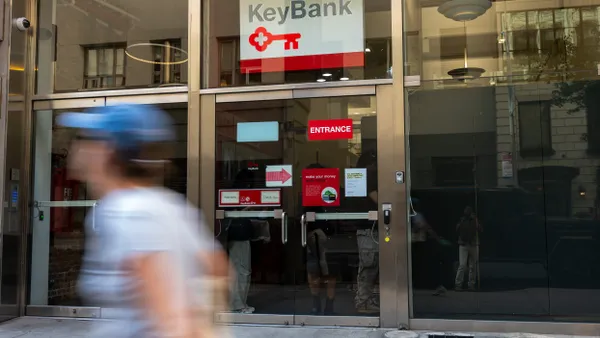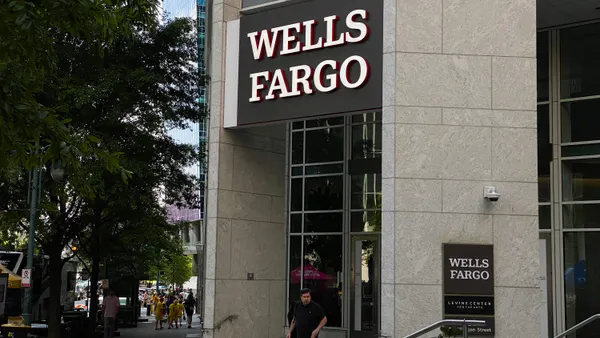The Office of the Comptroller of the Currency said Wednesday it has conditionally approved a de novo bank charter application for Erebor Bank, founded by tech billionaires Palmer Luckey and Joe Lonsdale.
The Columbus, Ohio-based digital-native bank applied for a charter roughly four months ago, on June 11, indicating an intention to serve tech companies focused on virtual currencies, artificial intelligence, defense and manufacturing, along with payment service providers, investment funds and trading firms.
“Erebor is the first de novo bank to receive a preliminary conditional approval since I arrived at the OCC. I am committed to a dynamic and diverse federal banking system, and our decision today is a first but important step in living up to that commitment,” said Comptroller of the Currency Jonathan Gould in a prepared statement.
While the timeline of Erebor’s conditional approval marks a quicker pace at the OCC under Gould, the OCC leasing manual indicates that its goal has been to make such decisions within 120 days.
“Bank regulators have long been subject to a four month turn-around time requirement, but that requirement was generally honored only in the breach by agencies under Presidents from both parties,” Brian Graham, partner and co-founder at financial services advisory and investing firm Klaros Group, told Banking Dive. “The approval of the Erebor application within that time requirement suggests that this OCC under this Comptroller is serious about hitting those deadlines, even for relatively novel and complex applications like Erebor.”
“That should be a very promising signal for the large number of other potential applicants for a bank charter,” Graham said.
Erebor, named after a mountain within J. R. R. Tolkien’s “The Lord of the Rings” universe, indicated on its application that it would also serve select high and ultra-high net worth individuals who work for, or invest, in Erebor’s target (tech) sector.
“Today’s decision is also proof that the OCC under my leadership does not impose blanket barriers to banks that want to engage in digital asset activities,” Gould said. “Permissible digital asset activities, like any other legally permissible banking activity, have a place in the federal banking system if conducted in a safe and sound manner.”
“The OCC will continue to provide a path for innovative approaches to financial services to ensure a strong, diverse financial system that remains relevant over time,” he said.
The OCC's preliminary conditional approval is dependent on Erebor meeting ongoing requirements, including maintaining a minimum 12% Tier 1 Leverage ratio during its first three years of operation.
Klaros partner and co-founder Michele Alt and industry lawyers penned a letter to the incoming administration in January encouraging regulators to support new bank formation, arguing that icing digital-first banks out of the regulated banking system discourages innovation and competition in banking.
“Creating a faster, simpler path by which applicants could obtain bank charters will foster innovative financial services through the approval and supervision of new banks, keep this activity within the regulatory perimeter, and enhance competition,” Alt wrote in a blog post on the letter. “It’s just common sense.”
Following Erebor’s conditional approval, however, Sen. Elizabeth Warren, D-MA, expressed concern that the tech-focused and crypto-friendly bank “will cater to the financial whims of Silicon Valley billionaires,” noting that Luckey and Erebor investor Peter Thiel are both friends of President Donald Trump.
“In a free market, credit flows fairly to businesses because they can use the money productively, not to the President’s cronies because of their political connections,” said Warren, the ranking member of the Senate Banking Committee, in a statement. “Trump’s financial regulators just fact tracked an approval of this risky venture that could set up another bailout funded by American taxpayers and destabilize our banking system.”
Warren previously expressed concern about Trump’s influence over crypto policy, given his myriad investments in the industry.














